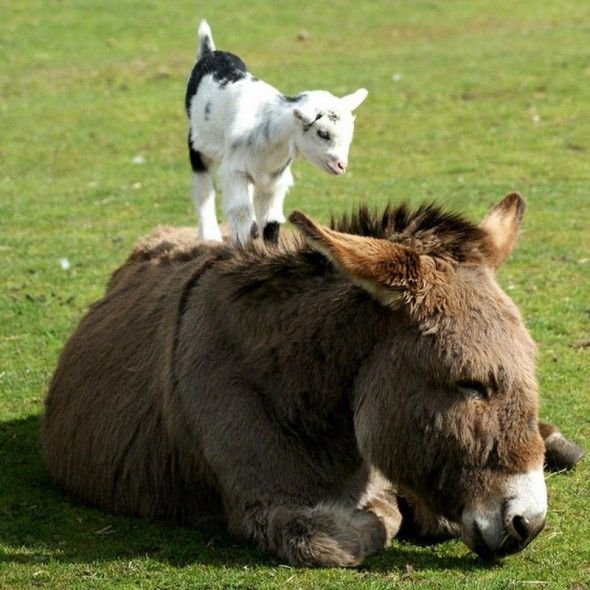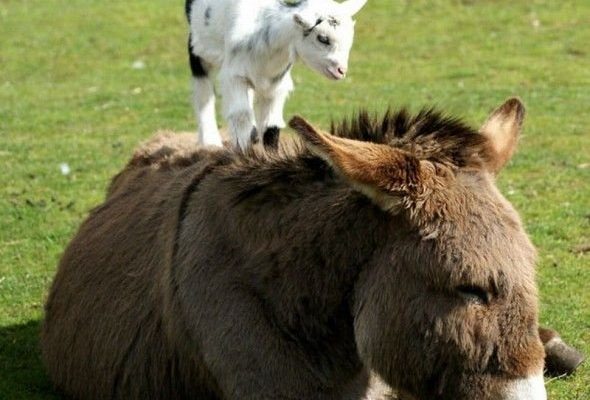
Let’s dive into why donkeys might be an excellent choice for protecting livestock. With their keen instincts and protective nature, these animals can offer more than just companionship. If you’re pondering whether a donkey could fit into your farm life as a protector, you’re in the right place. We’ll explore their unique characteristics, how they compare to other guard animals, and tips for integrating them into your livestock setup.
Why Choose a Donkey as a Guard Animal?
You might be wondering why you should even consider a donkey. Donkeys are known for being incredibly social creatures. They form strong bonds with other animals, especially when raised alongside them. This affinity makes them naturally protective.
One of the key traits that make donkeys excellent guard animals is their strong territorial instincts. When a donkey senses something unusual, whether it’s a fox sneaking around or some other predator, it won’t hesitate to bray loudly. This noise can act as a deterrent, alerting both the livestock and the farmer to potential danger. Plus, donkeys are known to confront threats head-on, which is a brave characteristic to have in any guard animal.
Another significant advantage is their ability to coexist with various types of livestock. Donkeys tend to get along well with sheep, goats, and cattle, making them versatile guardians. Unlike some dogs that might see livestock as prey, donkeys are generally more about protecting their herd rather than attacking.
How Do Donkeys Protect Livestock?
Now let’s break down how donkeys actually do their job as protectors. They aren’t just standing around looking cute (though they do that well, too!). When a donkey perceives a threat, it can employ several strategies to keep its companions safe.
First, their braying serves as an early warning system. If a predator approaches, the donkey’s loud call can scare off the intruder. It’s like having your very own alarm system that doesn’t require batteries! This vocalization not only alerts your livestock but can also give you a heads-up to check on the situation.
Second, donkeys have a natural instinct to confront threats. Many will approach a predator boldly rather than flee. This behavior can be shocking for an intruder, as donkeys can be quite formidable when they feel protective. They can kick and bite if they feel their herd is in danger. So, if you’re thinking of a natural bodyguard, a donkey might just fit the bill!
Finally, donkeys are excellent at identifying predators. They can distinguish between familiar animals and potential threats, making them valuable in environments where you may not always be present to monitor the safety of your livestock.
Comparing Donkeys to Other Guard Animals
It’s only fair to compare donkeys to other common guard animals like dogs and llamas. Each animal has its own strengths and weaknesses, and understanding these can help you make an informed choice.
Dogs are often considered the typical guard animal, known for their loyalty and trainability. They can respond to commands and be trained in specific protective behaviors. However, not all dogs are great with livestock; some breeds might chase or harm them instead. This is where donkeys offer a safer alternative, as they are less likely to view other animals as prey.
On the other hand, llamas have also gained popularity as guard animals. They are naturally protective and can be quite aggressive towards predators. However, they can sometimes be standoffish with humans. If your setup requires a friendly, social animal, a donkey might be a better choice.
The bottom line? While dogs and llamas have their advantages, donkeys can be excellent companions who readily bond with livestock and genuinely enjoy their role as protectors.
Best Practices for Keeping Donkeys as Guard Animals
If you’re considering adding a donkey to your farm for livestock protection, you should keep a few best practices in mind. Integration is key.
First, don’t just throw a donkey into a pen full of sheep and call it a day. Introducing them requires a gradual process. Start by letting them get used to each other through a fence or a barrier. It’s essential for the donkey to feel comfortable in its surroundings as well as with the livestock.
Next, socialization is crucial. Spend time with your donkey and your livestock together. You want the donkey to know it has your support and isn’t alone. This will build trust and confidence, helping it to become the effective guard animal you desire.
Lastly, make sure your donkey has a proper living space. They need shelter, food, and companionship, as donkeys are social animals. A happy donkey is a protective donkey!
Potential Challenges of Using Donkeys as Guard Animals
While donkeys have many advantages, there are some challenges to consider when choosing one as a guard animal. It’s not all sunshine and braying, unfortunately.
For one, donkeys can be quite stubborn. If they don’t want to do something, good luck convincing them! Training a donkey may require a bit more patience than training a dog. If you’re committed to the process, though, you’ll likely see great rewards.
Another issue is their tendency to bond closely with certain animals. If you introduce new livestock after the donkey has settled, it may take a while for it to accept the newcomers. The bonding process can be both a blessing and a curse; you want it to protect the herd, but you also need to manage any new introductions carefully.
Lastly, not all donkeys are created equal. Some may not have the instincts needed to protect livestock. It’s best to look for donkeys that have proven experience as guard animals or those known for their protective traits.
Final Thoughts on Adding Donkeys to Your Farm
So, are donkeys the right choice as guard animals for your livestock? Honestly, they can be an exceptional option! With their natural instincts, strong territorial behavior, and ability to bond with other animals, donkeys can offer a unique layer of protection.
You’ll need to be prepared for some training and socialization. But with a little effort, you could have one of the most dependable and loving guardians by your side. The ultimate takeaway? Donkeys might just surprise you with how effective they can be in safeguarding your livestock!
Whether you’re already raising livestock or thinking of starting, a donkey could be a fantastic addition to your farm. With their guard skills, they’ll not just protect animals; they might just win a place in your heart as well.

